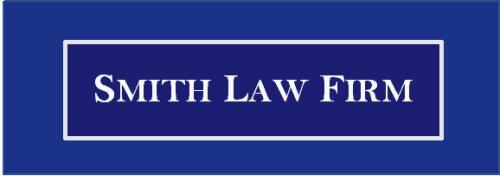Best Commercial Real Estate Lawyers in Toronto
Share your needs with us, get contacted by law firms.
Free. Takes 2 min.
Free Guide to Hiring a Real Estate Lawyer
List of the best lawyers in Toronto, Canada
About Commercial Real Estate Law in Toronto, Canada
Commercial real estate law in Toronto, Canada, is a complex field that governs various aspects of property transactions and ownership associated with businesses, commercial interests, and rental agreements. Toronto's diverse and dynamic real estate market includes office spaces, retail, industrial properties, and multi-residential buildings. Due to the city's rapid growth and global significance, real estate laws and regulations are constantly evolving, necessitating the need for legal expertise in transactions, development, leasing, and financing.
Why You May Need a Lawyer
Engaging a commercial real estate lawyer is crucial in multiple scenarios, including:
- Purchasing or Selling Property: Lawyers help with contract drafting, negotiation, and due diligence, ensuring that both buyers and sellers are protected and informed.
- Leasing Agreements: Whether you’re a landlord or tenant, a lawyer can help draft, review, and negotiate lease terms to ensure fair and legal agreements.
- Dispute Resolution: Legal assistance is often necessary in lease disputes, zoning disagreements, and breach of contract situations.
- Property Development: Lawyers guide developers through land use regulations, zoning bylaws, and environmental compliance.
- Financing and Investments: Experienced lawyers assist in structuring financing deals and ensuring securities regulations compliance.
Local Laws Overview
Commercial real estate in Toronto is influenced by various local laws and regulations, including:
- Zoning Bylaws: These determine the types of activities that can occur on a property and affect development projects.
- Ontario Real Estate Law: Provincial regulations that oversee property transactions and registration processes.
- Environmental Regulations: Legal requirements for assessing and managing environmental risks associated with real estate.
- Building Codes: Standards that must be met for construction and renovation projects to ensure safety and compliance.
Frequently Asked Questions
What is the difference between commercial and residential real estate?
Commercial real estate involves properties used for business purposes, such as offices, retail spaces, and industrial facilities, as opposed to residential real estate, which pertains to personal living accommodations.
What should I know before signing a commercial lease?
Before signing, ensure you understand the lease terms, rent structure, renewal options, maintenance responsibilities, and zoning regulations. Consulting with a lawyer can help clarify these elements.
Can I sublease my commercial space in Toronto?
Subleasing is possible but depends on the original lease agreement's terms. It often requires the landlord's consent and must comply with local laws.
What are common issues in commercial real estate transactions?
Common issues include title defects, environmental concerns, zoning restrictions, financing hurdles, and intricate contract terms, which legal professionals can help address.
How do zoning bylaws affect my commercial property?
Zoning bylaws dictate allowable property uses, affecting business operations, potential expansion, and new developments-knowing these can prevent legal infractions.
Is a lawyer necessary for buying commercial property in Toronto?
While not legally required, hiring a lawyer is advisable to ensure due diligence, proper documentation, and legal compliance, reducing risks in the transaction.
How can real estate disputes be resolved?
Disputes can be resolved through negotiation, mediation, arbitration, or litigation, depending on the nature and severity of the issue.
What are CAM charges in a commercial lease?
Common Area Maintenance (CAM) charges are expenses tenants pay for the upkeep of shared spaces in a commercial property, like lobbies and parking areas.
What is a 'quiet enjoyment' clause?
This clause ensures tenants can occupy their leased premises without interference from the landlord, as long as they follow the lease terms.
Are there specific environmental assessments required for commercial real estate?
Yes, an Environmental Site Assessment (ESA) may be needed to identify and mitigate hazardous conditions or contamination risks on a property.
Additional Resources
Consider the following resources for more information or assistance:
- Ontario Ministry of Municipal Affairs and Housing: Provides guidance on planning, zoning, and building regulations.
- Toronto Real Estate Board (TREB): Offers updates on market trends and real estate statistics.
- Law Society of Ontario: Find qualified real estate lawyers who specialize in commercial transactions.
- Local Chambers of Commerce: A resource for networking and professional connections within the real estate community.
Next Steps
If you need legal assistance in commercial real estate, start by consulting a lawyer specializing in the field. Prepare a list of your queries, documentation, and desired outcomes to streamline the consultation. Reach out to potential legal advisors through the Law Society of Ontario or referrals from trusted sources. Address your unique circumstances with clarity to achieve effective and efficient solutions.
Lawzana helps you find the best lawyers and law firms in Toronto through a curated and pre-screened list of qualified legal professionals. Our platform offers rankings and detailed profiles of attorneys and law firms, allowing you to compare based on practice areas, including Commercial Real Estate, experience, and client feedback.
Each profile includes a description of the firm's areas of practice, client reviews, team members and partners, year of establishment, spoken languages, office locations, contact information, social media presence, and any published articles or resources. Most firms on our platform speak English and are experienced in both local and international legal matters.
Get a quote from top-rated law firms in Toronto, Canada — quickly, securely, and without unnecessary hassle.
Disclaimer:
The information provided on this page is for general informational purposes only and does not constitute legal advice. While we strive to ensure the accuracy and relevance of the content, legal information may change over time, and interpretations of the law can vary. You should always consult with a qualified legal professional for advice specific to your situation.
We disclaim all liability for actions taken or not taken based on the content of this page. If you believe any information is incorrect or outdated, please contact us, and we will review and update it where appropriate.
















